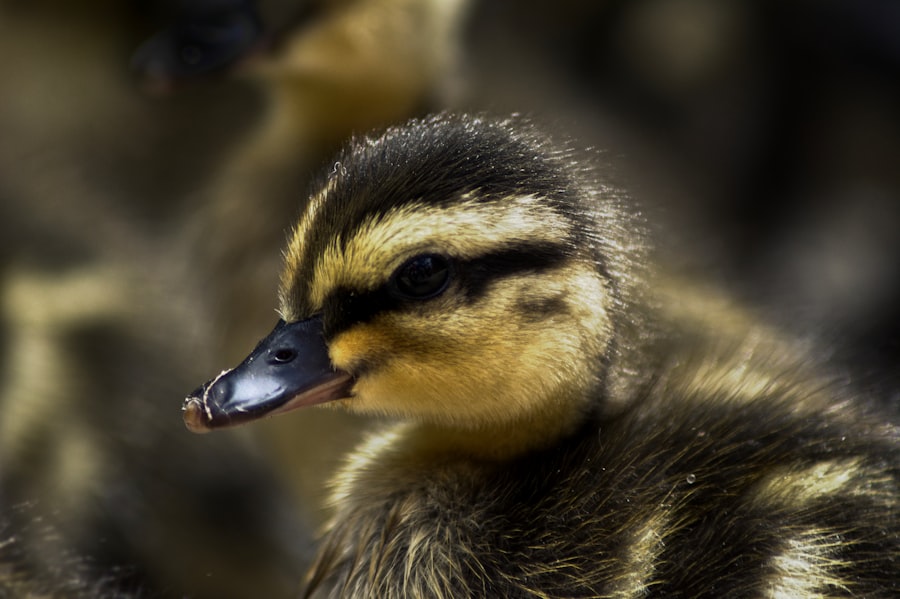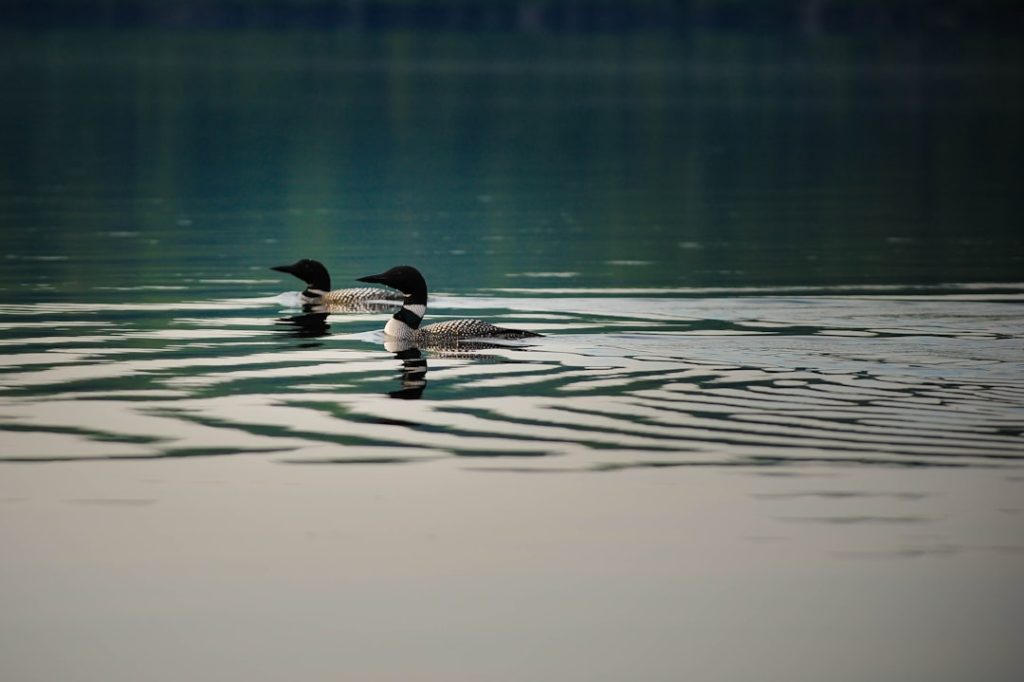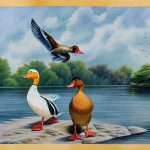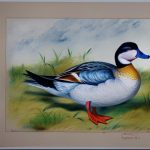When it comes to raising ducks in cold weather climates, choosing the right breed is crucial for their health and well-being. Different duck breeds have varying levels of cold tolerance, feather insulation, and overall hardiness, making some better suited for colder environments than others. Selecting the appropriate duck breed for your cold weather climate can mean the difference between thriving, healthy ducks and ones that struggle to survive in harsh conditions. It’s important to understand the specific needs and characteristics of different duck breeds in order to make an informed decision that will benefit both the ducks and the caretaker.
In cold weather climates, ducks need to be able to withstand low temperatures, icy conditions, and potential snowfall. Choosing a duck breed that is well-adapted to these conditions is essential for their overall health and ability to thrive in such an environment. Additionally, some duck breeds have better natural insulation in the form of down feathers, which can help them stay warm and dry in cold weather. Understanding these factors and how they relate to different duck breeds is key to making an informed decision when selecting ducks for a cold weather climate.
Table of Contents
- 1 Factors to Consider When Selecting Duck Breeds for Cold Weather
- 2 Top 3 Duck Breeds Ideal for Cold Weather Environments
- 3 Other Duck Breeds That Thrive in Cold Weather Conditions
- 4 Tips for Caring for Ducks in Cold Weather
- 5 Common Mistakes to Avoid When Raising Ducks in Cold Weather
- 6 Finding the Best Duck Breed for Your Cold Weather Climate
- 7 FAQs
- 7.1 What are the best duck breeds for cold weather?
- 7.2 What characteristics make these duck breeds well-suited for cold weather?
- 7.3 Do these duck breeds require any special care in cold weather?
- 7.4 Can these duck breeds tolerate freezing temperatures?
- 7.5 Are there any other duck breeds that can thrive in cold weather?
Key Takeaways
- Choosing the right duck breed for cold weather is crucial for their health and well-being.
- Factors to consider when selecting duck breeds for cold weather include cold hardiness, feather quality, and size.
- The top 3 duck breeds ideal for cold weather environments are Pekin, Khaki Campbell, and Cayuga.
- Other duck breeds that thrive in cold weather conditions include Swedish, Buff, and Runner ducks.
- Tips for caring for ducks in cold weather include providing adequate shelter, fresh water, and a balanced diet.
Factors to Consider When Selecting Duck Breeds for Cold Weather
When selecting duck breeds for cold weather climates, there are several important factors to consider. One of the most crucial factors is the breed’s cold tolerance. Some duck breeds are naturally more resistant to cold temperatures and can handle freezing conditions better than others. For example, breeds like the Pekin, Khaki Campbell, and Cayuga are known for their cold hardiness and ability to thrive in colder climates. These breeds have been selectively bred over time to develop traits that make them well-suited for cold weather environments.
Another important factor to consider is the duck breed’s feather insulation. Ducks with thick down feathers are better equipped to stay warm and dry in cold weather, as their feathers provide natural insulation against the elements. Breeds like the Buff Orpington, Swedish, and Runner ducks are known for their dense down feathers, making them ideal choices for cold weather climates. Additionally, considering the size of the duck breed is important, as larger ducks tend to have more body mass and can generate more heat to stay warm in colder temperatures.
It’s also important to consider the overall hardiness and adaptability of the duck breed. Some breeds are more resilient and adaptable to changing weather conditions, which can be beneficial in cold weather climates where temperatures can fluctuate dramatically. Understanding these factors and how they relate to different duck breeds is essential for making an informed decision when selecting ducks for a cold weather environment.
Top 3 Duck Breeds Ideal for Cold Weather Environments
1. Pekin Duck: The Pekin duck is a popular choice for cold weather climates due to its exceptional cold tolerance and hardy nature. This breed has been selectively bred for its ability to thrive in colder temperatures, making it well-suited for harsh winter conditions. Pekin ducks also have thick down feathers that provide excellent insulation against the cold, helping them stay warm and dry even in freezing temperatures.
2. Khaki Campbell Duck: The Khaki Campbell duck is another excellent choice for cold weather environments. This breed is known for its high egg production and cold hardiness, making it a practical option for those looking to raise ducks in colder climates. Khaki Campbells have a sleek body shape and dense down feathers that help them stay warm in cold weather, making them well-adapted to harsh winter conditions.
3. Cayuga Duck: The Cayuga duck is a beautiful and hardy breed that is well-suited for cold weather climates. Known for its iridescent green-black plumage, the Cayuga duck also has excellent cold tolerance and feather insulation, making it an ideal choice for colder environments. This breed is known to be calm and friendly, making it a great addition to any cold weather duck flock.
Other Duck Breeds That Thrive in Cold Weather Conditions
In addition to the top three duck breeds ideal for cold weather environments, there are several other breeds that thrive in colder climates. The Buff Orpington duck is known for its dense down feathers and calm disposition, making it well-suited for cold weather conditions. Swedish ducks are also a great choice for cold climates, as they have thick down feathers and a hardy nature that allows them to withstand freezing temperatures. Runner ducks are another option for cold weather environments, as they are known for their active nature and excellent cold tolerance.
Muscovy ducks are also worth considering for cold weather climates, as they have unique characteristics that make them well-adapted to harsh winter conditions. Muscovies have a high level of cold tolerance and are known for their ability to roost in trees, which can provide additional protection from the elements in cold weather environments. Understanding the various duck breeds that thrive in cold weather conditions can help caretakers make informed decisions when selecting ducks for their flock.
Tips for Caring for Ducks in Cold Weather
Caring for ducks in cold weather requires special attention to their housing, diet, and overall well-being. Providing adequate shelter is crucial for ducks in cold weather climates, as they need protection from wind, rain, and snow. Insulating their housing with straw or bedding can help keep ducks warm and dry during the winter months. Additionally, ensuring access to fresh water that doesn’t freeze is essential, as ducks need water for drinking and preening even in cold weather.
Feeding ducks a balanced diet that provides adequate nutrition is important year-round, but especially in cold weather when their bodies require extra energy to stay warm. Supplementing their diet with grains, vegetables, and high-quality duck feed can help ensure they receive the nutrients they need to thrive in colder temperatures. It’s also important to monitor their health closely during the winter months, as ducks can be more susceptible to illness in cold weather.
Common Mistakes to Avoid When Raising Ducks in Cold Weather

When raising ducks in cold weather climates, there are several common mistakes to avoid in order to ensure their health and well-being. One common mistake is failing to provide adequate shelter and protection from the elements. Ducks need a dry, draft-free space to roost and stay warm during the winter months, so it’s important to insulate their housing and provide enough space for all ducks to huddle together for warmth.
Another mistake to avoid is allowing water sources to freeze over. Ducks need access to water at all times, so it’s important to provide a heated water source or regularly break up ice to ensure they can drink and preen as needed. Additionally, overfeeding ducks in cold weather can lead to obesity and other health issues, so it’s important to monitor their diet and adjust feeding amounts accordingly based on their activity level and energy needs.
Finding the Best Duck Breed for Your Cold Weather Climate
In conclusion, choosing the right duck breed for a cold weather climate is essential for their health and ability to thrive in harsh winter conditions. Factors such as cold tolerance, feather insulation, and overall hardiness should be carefully considered when selecting duck breeds for colder environments. The top three duck breeds ideal for cold weather environments include Pekin ducks, Khaki Campbell ducks, and Cayuga ducks, all of which have excellent cold tolerance and feather insulation.
In addition to these top breeds, there are several other duck breeds that thrive in cold weather conditions, such as Buff Orpingtons, Swedish ducks, Runner ducks, and Muscovy ducks. Caring for ducks in cold weather requires special attention to their housing, diet, and overall well-being, as well as avoiding common mistakes such as inadequate shelter, frozen water sources, and overfeeding. By understanding the specific needs of different duck breeds and providing proper care in cold weather climates, caretakers can ensure the health and well-being of their ducks year-round.
When it comes to raising ducks in cold weather, choosing the right breed is crucial. In a recent article on PoultryWizard, they discuss the best duck breeds for cold weather and provide valuable insights for poultry enthusiasts. If you’re considering building a suitable coop for your ducks, you might also find their articles on A-frame chicken coops, garden chicken coops, and portable chicken coops helpful in creating a comfortable and practical living space for your feathered friends. Check out the article here.
FAQs
What are the best duck breeds for cold weather?
Some of the best duck breeds for cold weather include the Pekin, Khaki Campbell, Rouen, and Swedish ducks. These breeds have thick, insulating feathers and are well adapted to colder climates.
What characteristics make these duck breeds well-suited for cold weather?
These duck breeds have thick, insulating feathers that provide excellent protection against the cold. They also have a layer of down feathers close to their bodies, which helps to keep them warm in chilly temperatures.
Do these duck breeds require any special care in cold weather?
While these duck breeds are well-suited for cold weather, it’s still important to provide them with a draft-free shelter and access to fresh, unfrozen water. Additionally, providing extra food during colder months can help them maintain their body heat.
Can these duck breeds tolerate freezing temperatures?
Yes, these duck breeds are generally able to tolerate freezing temperatures, as long as they have access to a shelter that protects them from wind and moisture. It’s important to monitor them closely during extreme cold weather and provide additional bedding or insulation if needed.
Are there any other duck breeds that can thrive in cold weather?
While the Pekin, Khaki Campbell, Rouen, and Swedish ducks are well-known for their cold-weather hardiness, other breeds such as the Buff, Cayuga, and Welsh Harlequin ducks can also thrive in colder climates with proper care and shelter.
Meet Walter, the feathered-friend fanatic of Florida! Nestled in the sunshine state, Walter struts through life with his feathered companions, clucking his way to happiness. With a coop that’s fancier than a five-star hotel, he’s the Don Juan of the chicken world. When he’s not teaching his hens to do the cha-cha, you’ll find him in a heated debate with his prized rooster, Sir Clucks-a-Lot. Walter’s poultry passion is no yolk; he’s the sunny-side-up guy you never knew you needed in your flock of friends!







